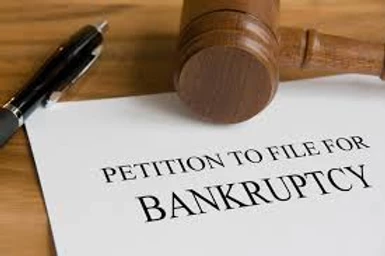
Chapter 7 refers to the section of United States bankruptcy law under which an individual can liquidate their assets (if they have any) in order to repay their debts. The Chapter 7 process is nuanced and provides the pro se filer many opportunities to make crucial mistakes. These mistakes, intentional or accidental, can be very costly. Here are the top 5 mistakes pro se filers make in Chapter 7 bankruptcy.
5. Filing Too Soon:
Filing to soon in Chapter 7 can leave the filer exposed to debts that were not discharged by their bankruptcy proceedings. Medical debts are among the most common obligations still accruing and therefore not discharged. These medical debts can include out of pocket cancer treatment or an injury that requires an unexpected surgery. Whether or not a debt is dischargeable is determined on the date of filing. If you’re still paying out of pocket for medical treatment for an illness or injury it is too soon to file Chapter 7.
It is likely too soon to file bankruptcy if a filer has not considered alternative solutions to bankruptcy. While the stigma attached to bankruptcy is often overblown, it does impact one’s credit score. If your financial struggles can be cured by negotiating and settling with your creditors, filing bankruptcy solely to escape creditor harassment may not be the answer.
4. Post-Bankruptcy Complacency:
After a filer successfully completes the Chapter 7 discharge process it is tempting for one to kick their feet up. A filer’s work is not complete when debts are discharged. It is important for a successful filer to stay financially proactive post-discharge because Chapter 7 has negative consequences on a filer’s credit, filers of Chapter 7 are predisposed to financial mistakes, and should stay focused on not repeating any mistakes. Some ways to be proactive after your Chapter 7 discharge include: obtaining secured or retail credit cards in order to improve your credit score, checking your credit reports often and disputing the errors you find, obtaining a secured loan, and being responsible with your budget/finances. Combining these practices can cut your post-bankruptcy rebound time in half!
3. Filing Chapter 7 Too Late:
Debtors often wait too long to file bankruptcy due to shame. Filing bankruptcy Chapter 7 is sometimes seen as a personal failure. The Bankruptcy Code is meant to provide the honest debtor with a fresh start. Failing to file Chapter 7 while it is the proper way for the filer to escape financial struggles means that the potential filer is wasting their life in misery when there is an out provided by the laws of the United States. Financial stress saddles all aspects of the debtor’s life. Filing when the time is right rids the debtor of that burden and allows more focus on a fresh start. Too often potential filers come to Chapter 7 attorneys after spending years trying in vain to pay their debts, which often leaves them with nothing left to protect in filing bankruptcy. File when the time is right!
2. Filing Chapter 7 without a lawyer:
Chapter 7 is a complicated process which is best navigated by to the professional attorneys. It is understandable for debtors to try to save money. A potential filer may be tempted to seek the help of a non-attorney, bankruptcy petition preparer, or even file themselves. Bankruptcy petition preparers are not lawyers and they cannot provide legal advice. They act under your strict control and their effectiveness is limited by the extent of your knowledge. Only a qualified bankruptcy lawyer can determine the appropriate type of bankruptcy to file and protect your assets by maximizing exemptions provided by the Bankruptcy Code. The money you save by not hiring a qualified bankruptcy lawyer will likely result in costly mistakes. Even an inadvertent mistake may lead the trustee or creditors to allege fraud against a filer which drastically complicates the bankruptcy. Hire a qualified Chapter 7 attorney!
1. Dishonesty:
Some filers attempt to conceal income or commit other fraudulent acts in bankruptcy to commit fraud. Most are caught. It is not worth the risk! Running up a credit card with the intent to discharge the debt, not listing assets on your schedules in an effort to keep them from the trustee and your creditors, or other abuses of the bankruptcy process for personal gain constitute fraud and the penalties are very stiff. A dishonest filer will fail to discharge debts and possibly incur criminal liability!